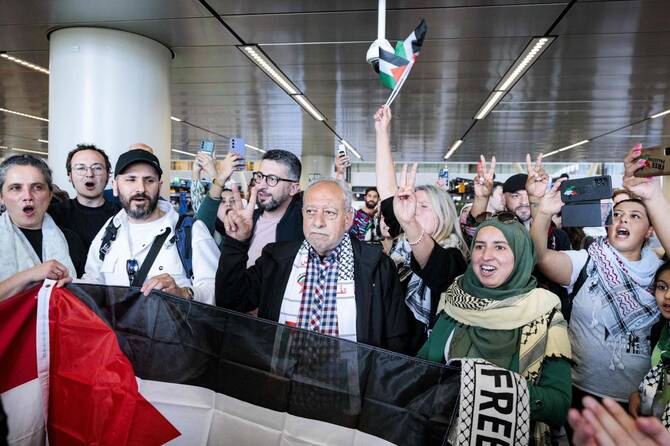Gobran Mohamed
CAIRO: Egypt and Greece have rejected a memorandum of understanding signed in Tripoli between Libya’s Government of National Unity and Turkey for gas and oil exploration in Libyan waters.
Libya is split between two rival administrations. One is the Government of National Unity of Abdul Hamid Dbeibah in Tripoli, who refused to step down after Libya failed to hold elections last year.
A second administration is led by Fathi Bashagha who operates from the eastern city of Benghazi after failed efforts to install his government in the capital.
Turkey supports the Tripoli-based GNU, whose legitimacy is contested by the Libyan parliament.
At a joint press conference with GNU counterpart, Najla El-Manqoush, Turkish Foreign Minister Mevlut Cavusoglu announced the signing of a “memorandum of understanding for oil and gas exploration in territorial waters and on Libyan territory by joint Turkish-Libyan companies.”
Cavusoglu stressed that the MoU is “an affair of the two countries, and no country has the right to interfere,” noting that his country “does not suffer from any shortage of energy,” and expecting that “the trade exchange between Libya and Turkey will increase to $4 billion.”
El-Manqoush said the MoU between the two countries “is in their interests.”
Egyptian Foreign Minister Sameh Shoukry received a phone call from his Greek counterpart Nikos Dendias to discuss regional issues. They stressed that the regime in Tripoli does not have the authority to conclude any international agreements or memoranda of understanding, Egypt’s Foreign Ministry said in a statement.
Dendias later tweeted: “Ι spoke with Egypt counterpart Shoukry regarding the recent developments in Libya. We both challenged the legitimacy of the Libyan Government of National Unity to sign the said MoU.”
He said he will visit Cairo on Sunday for further consultations.
The Egyptian Foreign Ministry spokesman, Ahmed Abu Zeid, said Dbeibah does not have the authority to sign new agreements, especially about the future of the Libyan people and the management of their resources.
The Greek Foreign Ministry said that Greece is “closely following developments in Libya, particularly signing of an MoU on hydrocarbons between the Government of National Unity of Libya and Turkey.
“Greece has sovereign rights in the area, which it intends to defend using all legal means, with full respect for the international law of the sea,” it added.
It said Greece “will continue to inform its partners and allies about Turkey’s destabilizing role.”
The dispute between Egypt and Greece on one side and Turkey on the other dates back to November 2019, when the Turkish government and the Libyan Government of National Accord signed an MoU on sovereignty over the maritime areas in the Mediterranean.
Greece said: “It is noted that the Turkish-Libyan memorandum of 2019 is illegal, invalid and non-existent. Therefore, no one has any right to invoke it.”
A high-level Turkish delegation arrived on Monday in Tripoli, headed by Ibrahim Kalin, the chief adviser to the Turkish president.
The Speaker of the Libyan House of Representatives Aguila Saleh said that “any agreement, treaty or MoU made by the PM of the Government of National Unity is rejected and illegal due to the expiry of her mandate on Dec. 24, 2021.”
Saleh also warned that the signing of any MoU, treaty or agreement by the Dbeibah regime “is not binding on the state of Libya and the Libyan people.”
Saleh pointed out that any MoU signed must be made through the head of state or parliament, or through the legitimate government that has won the confidence of parliament, represented by the government of Bashagha.
Greece welcomed the statement.
The Bashagha government said that it “will begin direct consultations with national, regional, and international partners to respond appropriately to these abuses.”
It described the MoU as “threatening the interests of peace and security in Libya and the region.”
The spokesman for the GNU, Mohamed Hammouda, said the MoU between the Libyan and Turkish sides strengthens cooperation.
The political deadlock over control of the government has frustrated efforts to hold national elections in Libya and raised fears that the country could return to conflict.






















